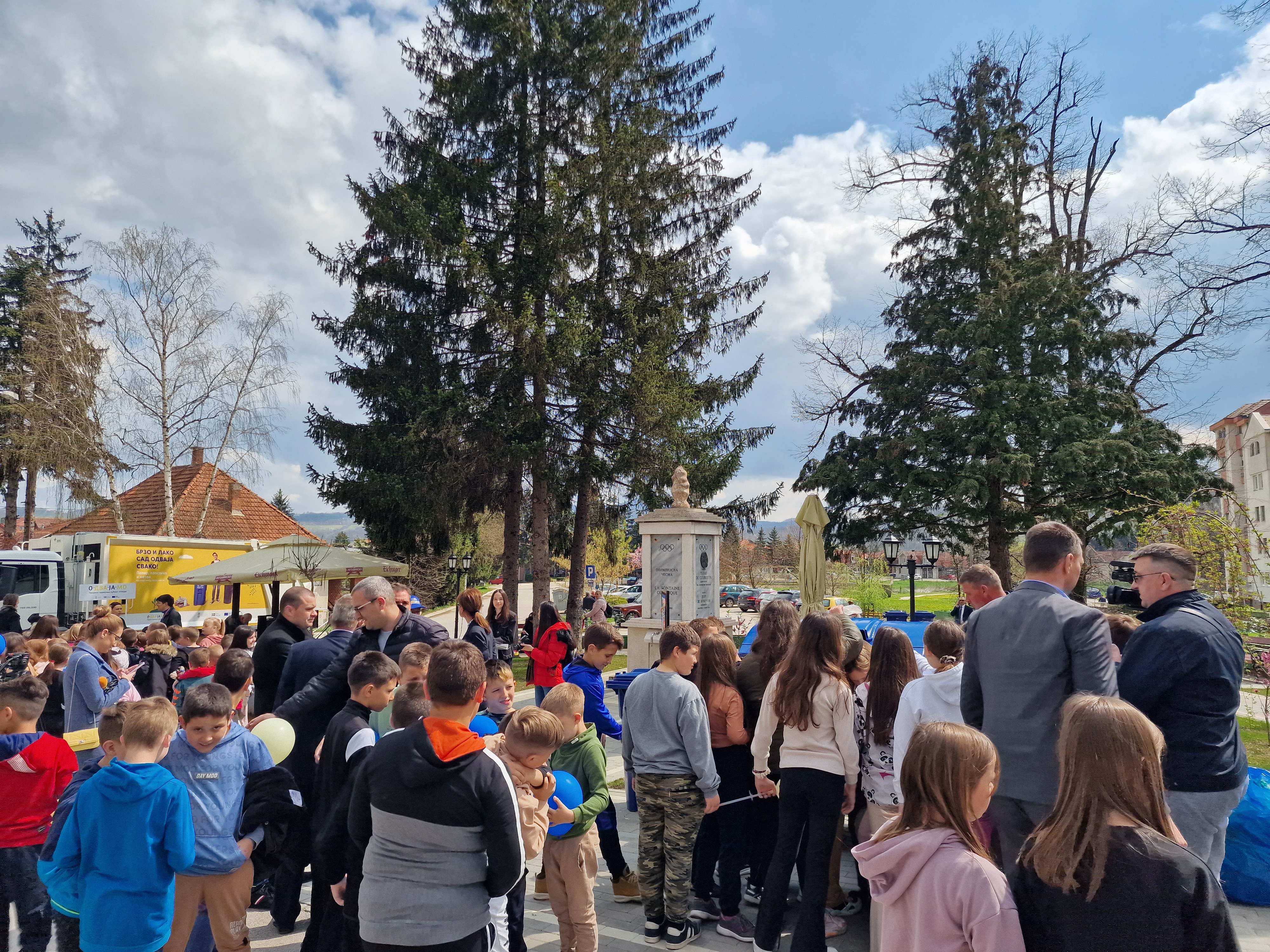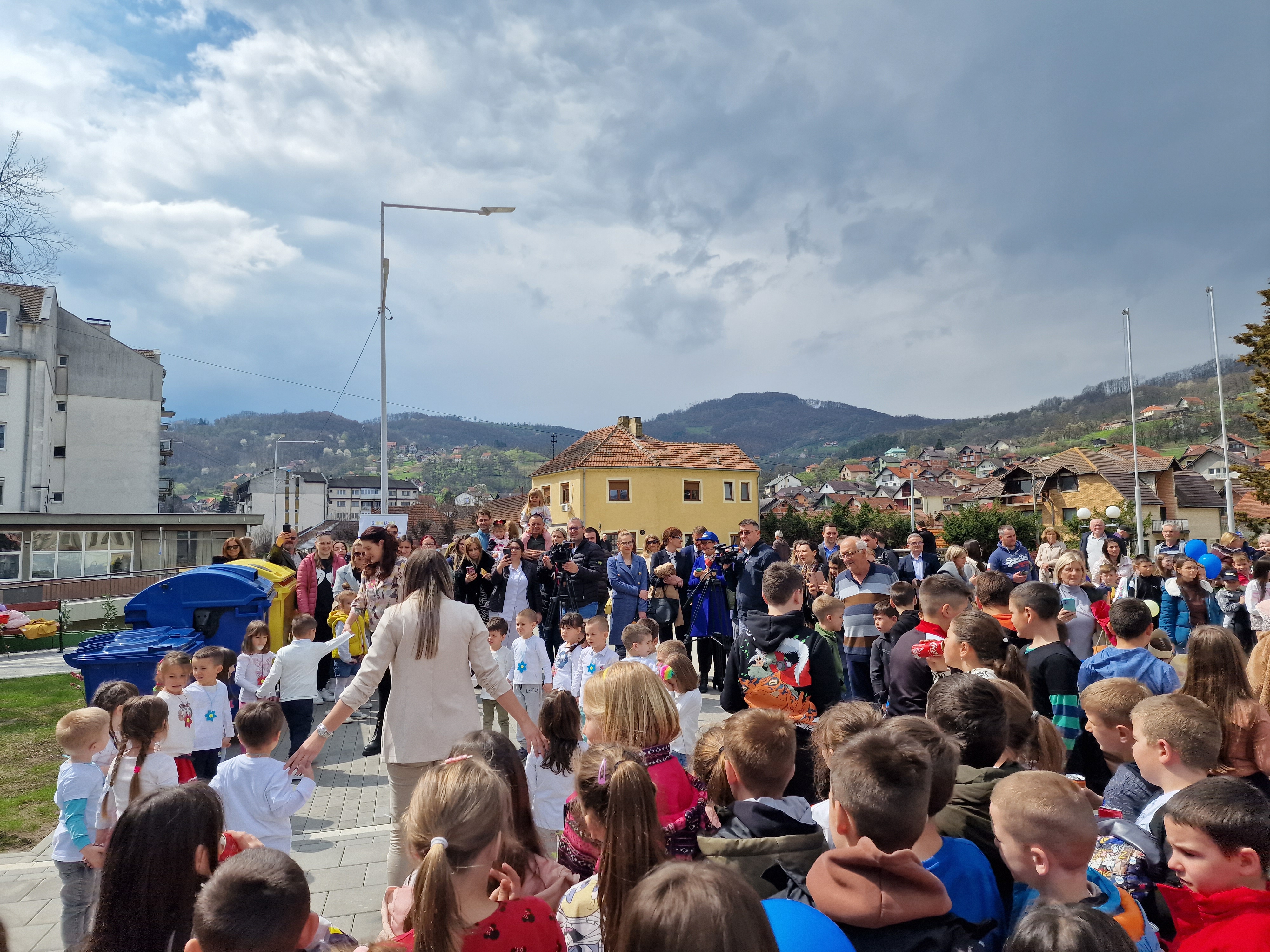On April 20, in the Memorial Park Svetomir Đukić in Kosjerić, the Project for Household Waste Separation "O-DVA-JA-MO" Household Waste Separation which is implemented in 17 municipalities in Serbia was officially launched. The goal of the project is to recycle part of the waste generated in households and in this way reduce the amounts of waste ending up in landfills and increase the recycling rate in these municipalities to 15%.
The "O-DVA-JA-MO" project is implemented with the support of the Ministry of Environmental Protection of the Republic of Serbia with the help of the European Union and the Embassy of Sweden. The project provides expertise and equipment for local authorities in order to design and improve waste separation systems at the point of origin.

With the investment of the European Union and the Government of the Republic of Serbia, 26 vehicles for the transport of recycling waste, more than 90,000 containers and bins and a public information campaign were provided.Through this project, Kosjerić received a new 20m3 waste collection vehicle, 38 containers and 1200 bins for dry recyclable waste. The value of the Project for Household Waste Separation implemented in the municipality of Kosjerić is 181,000 euros, and the participation of the local self-government is 15% of the funds.
The Assistant Minister at the Ministry of Environmental Protection, Ms. Dušan Čarkić, pointed out that the goal and plan for the next ten years is to have as little garbage as possible ending up in landfills and for as much waste as possible to be included in primary separation and afterwards used as a resource for further production .
Karin Macdonald, the Head of sector for Cooperation and Development at the Embassy of Sweden, underlined that in recent years, there has been a noticeably increased interest and commitment of the citizens of Serbia for the issues of environment, which is encouraging."Together with the citizens of Serbia, we want to improve cooperation in the field of environment and to speed up the development of Serbia and its access into the European Union," added Mrs. McDonald.
The public utility company "Elan" will strive to reach a recycling rate of 7-10% by the end of the year, and their goal is to keep this rate growing in the following period.Children from the "Olga Grbić" preschool institution took part in the promotion of the project with a performance on the topic of environmental protection and eco ambassadors informed the citizens about the project and the benefits of waste separation and recycling for the environment and the local community.

The European Union financed this project with 6 million euros, and Serbian national and local authorities are participating in the project with an investment of 1.8 million euros. Technical support was provided by the Embassy of Sweden to support the national authorities and all 17 local self-governments in the successful implementation of the household waste separation project. Local governments and public utilities are fully responsible for providing new services.
The Waste Management Program in Serbia 2022-2031, adopted by the Government of Serbia as part of EU accession, aims to improve the municipal waste management system through an increased rate of recycling, reduced disposal of biodegradable waste in landfills and reduced disposal of waste in unhygienic landfills.
Now everyone can separate waste fast and easily!